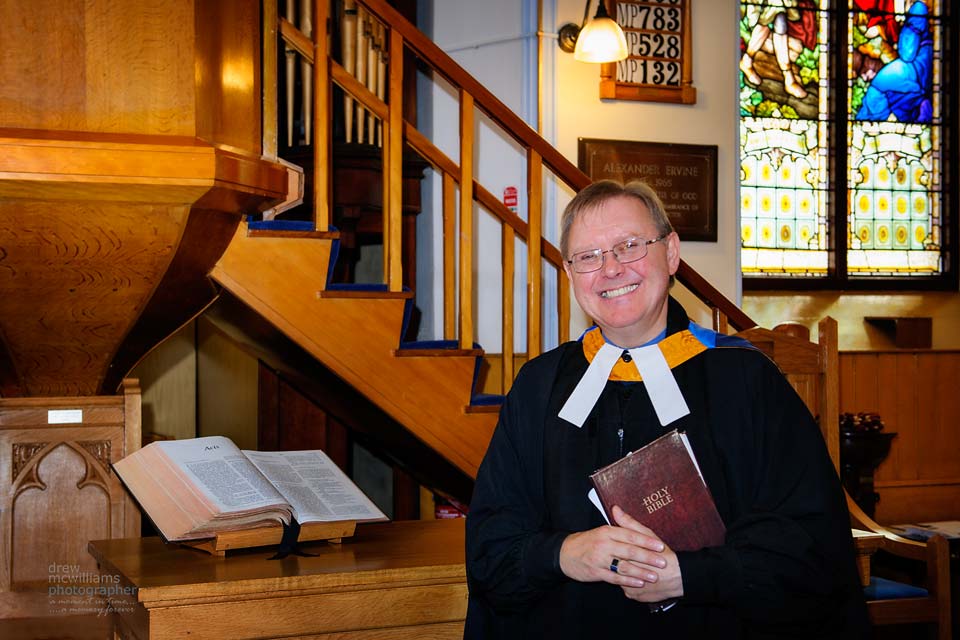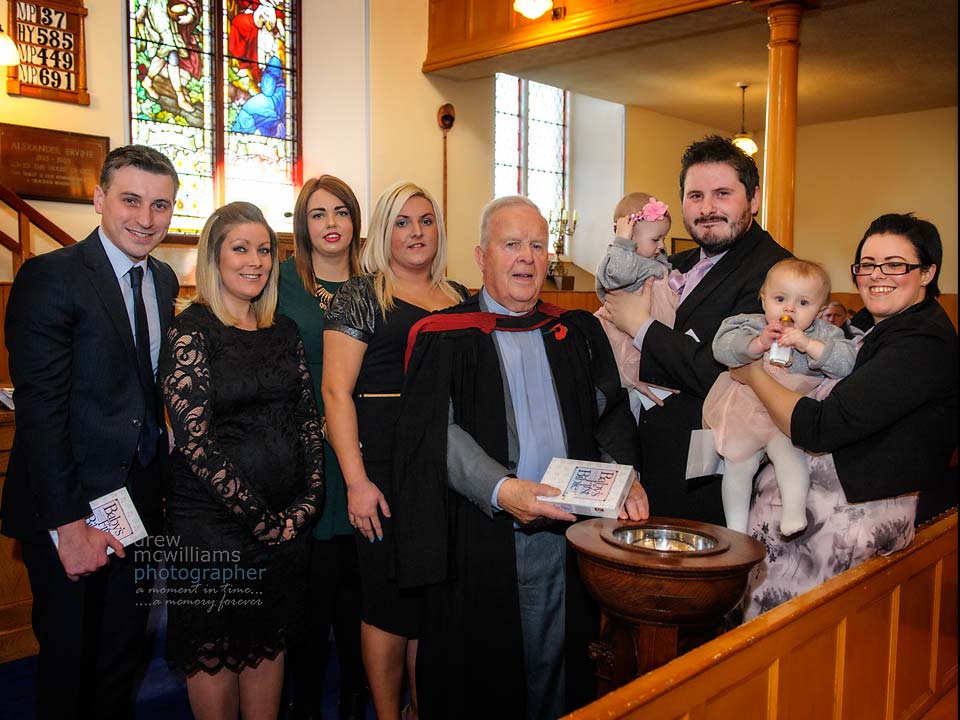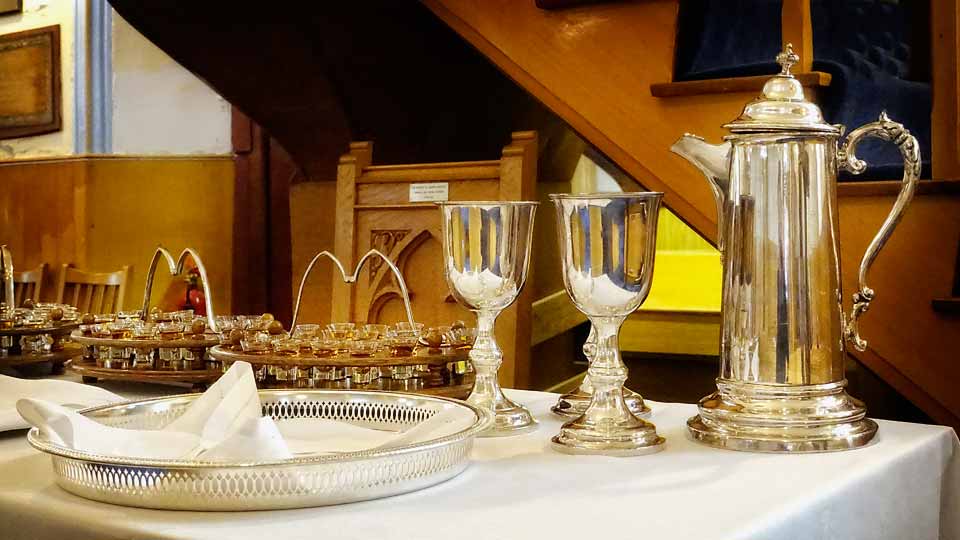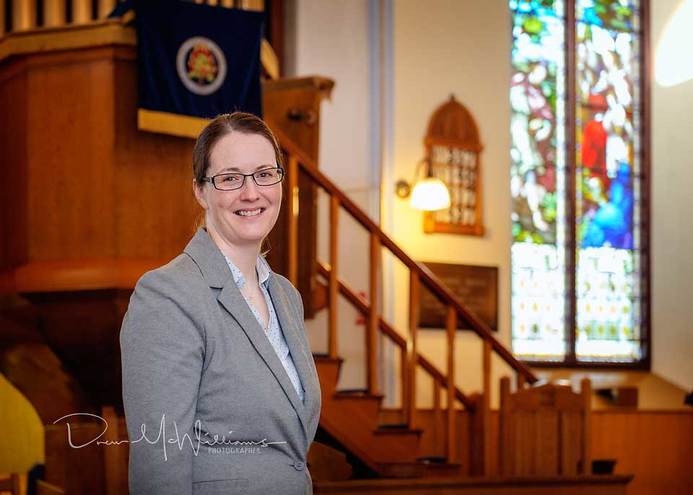We began with our belief in God. The One God, met as Father, Son and Holy Spirit (as well as in the natural world around us). We explored how we understood Jesus Christ as Lord (name above all others), Master (guide in life) and Saviour (the one who brings us to God). And then, how the Holy Spirit as person or power (you decide!) the way God embraces His creation and changes the hearts of humanity.
So, there’s us and there’s God and the gap between! That gap is bridged by the person of Christ, who showed by his mission, ministry, death and resurrection, how we too can become children of God, if we embrace His example, and open ourselves to the transformation which the Spirit offers.
And that brings me to the Sacraments. In a moment, I’ll do the formal definition bit, but really the way to think about them is as a doorway to the Divine, a gateway to God. By what we do at a Baptism (Christening) or at the Lord’s Supper (Communion), we are seeking to open ourselves to transformation, by the power of the Holy Spirit and after the example of Christ Himself.
What does Sacrament mean? It simply means a ceremony – or ceremonies - that bring Grace that is the Divine Life to us. The means by which we seek, and through which God offers, change; in the old language; ‘an outward and visible sign of an inward and spiritual grace’!
Now Christians disagree on the number of Sacraments. Quakers says none, that ‘all life is sacramental’. Congregationalists, Methodists and Presbyterians (subscribing or otherwise), say there are two: Baptism and the Lord’s Supper. Anglicans say (technically), that there are seven (two major and five minor), whilst Roman Catholics and Orthodox Christians say that there are also seven but of equal importance adding: confirmation, confession, marriage, anointing of the sick and ordination, to baptism and the mass.
So Christians are divided on the number. We are also divided in our understanding as well. Some Anglicans, Catholics and the Orthodox affirm transubstantiation, than the bread (or wafer) and wine become the body and blood of Christ. Other Anglicans go for consubstantiation that, that the bread (or wafer) or win somehow contain the body and blood of Christ, but are outwardly unchanged.
Respectfully, we disagree. As Protestants; in common with Congregationalists, all other Presbyterians and the Methodists we affirm that the water in Baptism, the bread and the wine in the Lord’s Supper is symbolic, and that the change that occurs is in our hearts and not in the Hovis.
Recall Matthew 3:13-16 & 28:16-20 (NLT) once more:
Then Jesus went from Galilee to the Jordan River to be baptised by John. But John tried to talk him out of it. “I am the one who need to be baptised by you, “he said, “so why are you coming to me?” But Jesus said, “It should be done, for we must carry our all that God requires.” So John agreed to baptize him. ‘After his baptism, as Jesus came up out of the water, the heavens were opened and he saw the Spirit of God descending like a dove and settling on him. And a voice said, “This is my dearly loved Son, who brings me great joy.’
Jesus gives us His example of Baptism. Jesus then commands that ‘It should be done’ (noting, that this is Baptism not ‘dedication’ which really is an Old Testament rite. And then, of course, we have the ‘Great Commission’:
‘Then the eleven disciples left for Galilee, going to the mountains where Jesus had told them to go, when they saw him, they worshipped him – but some doubted! Jesus came and told them his disciples, “I have been given all authority in heaven and on earth. Therefore go and make disciples of all the nations, baptizing them in the name of the Father and of the Son and the Holy Spirit. Teach these new disciples to obey all the commands I have given you. And be sure of this: I am with you always, even to the end of the age.”
These words establish Baptism as a Sacrament. They are why we do, what we do; just as 1.Corinthians 11:23-26 and Luke 22:14-19 in the same establishes the Lord’s Supper.
‘For I pass on to you what I received from the Lord Himself. On the night on which he was betrayed, the Lord Jesus took some bread and gave thanks for it. Then he broke it in pieces and said, “This is my body which broken for you. Do this to remember Me.” In the same way, He took the cup after supper, saying this cup is the new covenant between God and His people – an agreement confirmed with My blood. Do this to remember Me, as often as you drink it. For every time you eat this bread and drink this cup, you are announcing the Lord’s death until He comes again.’
Friends, please note Christ’s clear commands. Baptism: ‘It should be done’, ‘Go and make disciples’, ‘Baptizing them in the name of the Father, and of the Son, and of the Holy Spirit’ and Lord’s Supper: ‘Do this to remember me’. By Baptism we come to faith, and by the Lord’s Supper we grow and are sustained in faith; both necessary for Salvation (being right with God).
There is more that could be said. That it is properly – in the reformed tradition - the Lord’s Supper and not Communion; and the first word gives a greater emphasis on the ‘act of remembrance’, but that is for another day.
But most importantly, we affirm the two Sacraments. These being Baptism and the Lord’s Supper, established by Christ in Scripture; the means by which we come to and are sustained in faith; open to all who are moved by love of God; the two ‘great and necessary’ Sacraments.
What do non-subscribers believe?
We believe in the Sacraments. Amen.
This is the third in a series of addresses by The Rt. Reverend Christopher Wilson, MA
Click here for the first address, We believe in God
Click here for the second address, We believe in Jesus
Click here for the thrid address, We believe in the Holy Spirit




 RSS Feed
RSS Feed